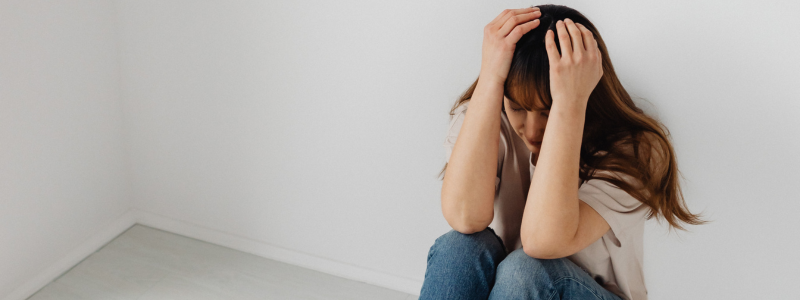
Head of Online Medical Content

Audiology Expert

How do I know if I need hearing aids?
When your hearing doesn't feel quite right, it's time to act
Overview | When hearing gets tricky | Signs you might need hearing aids | What to do next | Conclusion
Last Hearing Aid UK Update:
Overview
This article helps you recognise common signs of hearing loss, like struggling in noisy places, turning up the TV, or asking people to repeat themselves.
It explains how these challenges can affect daily life and encourages getting a hearing test if you’re concerned. With modern, discreet hearing aids available, seeking help early can make a big difference.
Do I need hearing aids?
"Is it me, or is everyone mumbling?". "Could you say that again?" Sound familiar? We've all been there on some level, perhaps not all the time, but those questions sometimes make you wonder if your hearing isn't quite right.
Hearing loss is one of those things that often creeps up on us. It's not always sudden, and more often than not, it's a gradual fading of sounds we recognise. And because it happens slowly, it's easy to dismiss the early signs or put them down to other things, like distraction or stress.
But if you're starting to notice that you're not hearing as well as you used to, it might be time to think about hearing aids. So, how do you know if it's time to take that step? Let's explore some common scenarios and signs that might suggest hearing aids could be helpful.
When hearing gets tricky - Some common life scenarios
Think about your typical day - are there situations where you find yourself struggling to hear or understand what's being said? Here are a few common scenarios that you might be able to relate to.
Social gatherings
You're at the pub with your friends and having a conversation, but with other background chatter and the clinking glasses, you're struggling to follow the conversation. You find yourself nodding along and smiling, even when you're not entirely sure what's being said.
Or you find yourself constantly asking people to repeat themselves, which can feel a bit awkward and tiring for everyone involved.
Family time
Sunday lunch at your house, and the grandchildren are running around, the music is on, and everyone is talking at once, it suddenly becomes a complicated listening environment. You feel a bit left out because you can't quite follow the flow of conversation.
Watching television
You're trying to enjoy your favourite drama, but you have to turn the volume up so high that it starts to frustrate those around you, and you're starting to feel a bit self-conscious.
Phone calls
You're on the phone, but you're having a hard time understanding what's being said. You keep saying "Pardon?" and "Could you speak up a bit, please?", which is frustrating for both of you.
Trips to the theatre or cinema
You find it increasingly difficult to follow the dialogue, especially if the actors are speaking softly or there's a lot of background music. If any of these situations sound familiar, it's worth considering the possibility of hearing loss.
Signs you might need hearing aids
Beyond those specific scenarios, here are some more general signs that might indicate you could benefit from hearing aids:
You might be frequently asking people to repeat themselves. If you find yourself constantly saying "Pardon?", "What was that?", or "Could you say that again?".
It's a good indication that you're not hearing everything clearly. Another common problem with hearing loss is difficulty understanding speech, especially in noisy environments.
You might be able to hear that someone is talking, but you can't make out the words. Noisy places, like pubs, restaurants, or crowded rooms, make this even more challenging. You may also find yourself turning the television or radio up louder than others.
If your family or friends are complaining that the TV or radio is too loud, it might be because you're having trouble hearing it at a normal volume.
You might even start to feel like people are mumbling, when in fact, the problem is that you're not hearing the higher-pitched sounds of speech.
Phone conversations can also be particularly difficult for people with hearing loss because you don't have the benefit of visual cues like lip reading or facial expressions.
Don't be left feeling isolated
If you find yourself avoiding social gatherings because you're worried about not being able to hear, this is a significant red flag.
Hearing loss can lead to social isolation, which can have a negative impact on your overall well-being. Struggling to hear can be exhausting. If you find yourself feeling drained or stressed after having to concentrate on listening, it might be a sign that your hearing is impaired.
Ringing in your ears (tinnitus), which is often described as a ringing, buzzing, or hissing sound in the ears, can be another symptom of hearing loss. Sometimes, it's the people closest to you who notice your hearing loss before you do.
If your family or friends have mentioned that you're not hearing as well as you used to, it's worth taking their concerns seriously.
Related reading: I'm avoiding social gatherings
Taking the next step
If you're experiencing any of these signs, the best thing to do is to get your hearing checked by a professional. An audiologist can perform a hearing test to determine the extent of any hearing loss and recommend the best course of action.
Hearing aids aren't a sign of old age; they're a treatment to help you stay connected to the world and enjoy life to the fullest. With today's technology, hearing aids are smaller, more comfortable, and more effective than ever before.
So, if you're wondering "do I need hearing aids?", take a moment to reflect on your daily life, your hearing challenges, and consider the signs. If you're struggling to hear, don't hesitate to seek professional advice.
Summary
There are everyday signs that may indicate hearing loss, such as difficulty following conversations, turning up the volume on the TV, or feeling isolated in social situations.
It is important to recognise these symptoms early and seek a professional hearing test. With today’s advanced technology, hearing aids can greatly improve the quality of life and help you stay connected.
Why Choose Us?
- FREE Hearing Tests
- Best Hearing Aids and Prices
- FREE Aftercare for Life
- FREE Home Visits
- 200+ Local Audiologists
- 60 Day Money Back Guarantee
When is it time to get hearing aids?
Don't ignore problems with your hearing!
Hearing loss is one of those things that often creeps up on us. It's not always a sudden, dramatic change; more often, it's a gradual fading of the sounds of life.
And because it happens slowly, it's easy to dismiss the early signs or put them down to other things. But if you're starting to notice that you're not hearing as well as you used to, it might be time to think about hearing aids.
Contact us today for a free hearing assessment, either in your local clinic or at home with an audiologist in your area.
Other hearing loss awareness articles you might like...
 Hearing aid stigma
Hearing aid stigma  The impact of diet on your hearing
The impact of diet on your hearing  How to tell if hearing loss is permanent or temporary
How to tell if hearing loss is permanent or temporary Our specialist service includes:
Do not spend hundreds of pounds without getting a second opinion from us.
Please call us on 0800 567 7621
 Not only are the prices great, but the service is fantastic! Many thanks to your team.
Not only are the prices great, but the service is fantastic! Many thanks to your team.What's included in our hearing aid prices?
Other pages you might find useful
Ask the Experts
6 Morton Lane
Walkwood
Redditch
Worcestershire
B97 5QA
Latest Launch
When we refer to a product as 'Latest Launch', we mean it is the latest to be released on the market.
New
When we refer to a product as 'New', we mean that the product is the newest hearing aid model on the market.
When we refer to a product as 'Superseded', we mean that there is a newer range available which replaces and improves on this product.
Older Model
When we refer to a product as an 'Older Model', we mean that it is has been superseded by at least two more recent hearing aid ranges.
